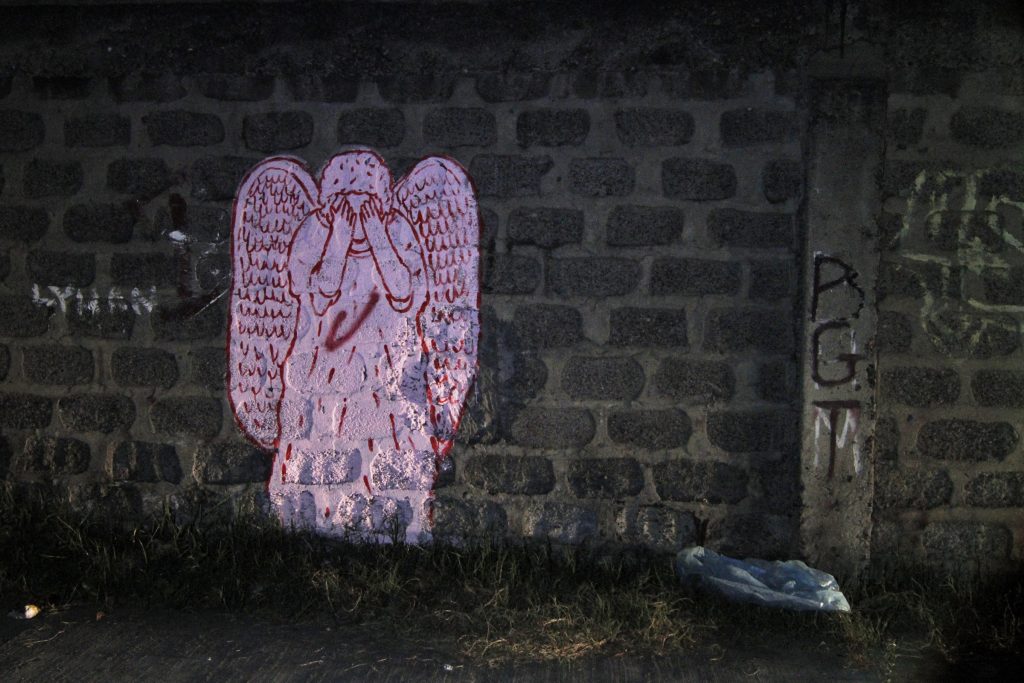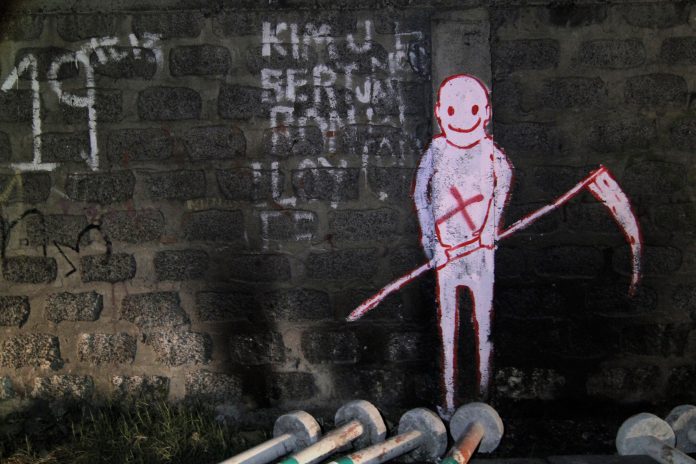In both our readings [on Tuesday, July 14], we hear about prophets FORETELLING THE FUTURE: Isaiah in the first reading, and Jesus in the Gospel.
In the first reading, Isaiah is assuring the King of Judah that he had no reason to be worried about the threats of invasion from the north — from the joint forces of Samaria and Damascus. Instead he predicts their looming destruction — which actually took place for Samaria in 722 BC — the fall of the Northern Kingdom under the Assyrian empire. In the Gospel, Jesus is proclaiming an oracle of judgment, also predicting doom and destruction for the cities of Chorazin and Bethsaida.
Is it really possible for people to know the future? Some people are willing to pay a fortune just to be able to know what lies ahead of them. Sometimes they seek the services of fortune-tellers who interpret the lines on the palm of their hands or use tarot cards in order to answer their questions about the future. Questions like: Is this the man I am destined to marry? Will this business venture be successful? Does my son have a future in politics?
This is also a favorite storyline for fantasy movies. You would surely be familiar with science fiction movies about people in the present doing a time travel into the past, and having the advantage of knowing what the future holds for characters in the past. An example would be “Back to the Future” which became so popular it was even followed by two sequels.
Recently there was also this Japanese movie about a boy who could foretell a disaster before it actually happened. He would walk in the street and suddenly encounter people in the opposite direction, walking around with an ashen face, looking like a walking cadaver. Usually the encounter would be followed by an accident that would happen a few minutes later, and the person whom he had seen with the white face a while ago would be one of the casualties. In short, he had this rare ability of seeing the future. At some point, he would realize he could still do something to save them, like push them to a sidewalk if they were about to get run over by a car.
Is this the kind of work that the biblical prophets were involved in? Fortune-telling? Was it their job to foretell the future? Sorry, NO. This is the most common misunderstanding about the role of the prophet. Even in Filipino we have this erroneous idea about the job of a prophet. Ask people what they understand by the word “propeta” and they would say, “manghuhula” meaning, a fortune-teller.
Actually, the biblical prophets were more interested in the present than in the future. They regarded themselves only as messengers. Their main task was to tell people nothing except what God wanted them to know about his predicament over the existing state of affairs. Sometimes they gave angry oracles, predicting doom and judgment, denouncing oppression and injustice in society. At other times they pronounced oracles of hope and consolation.
They always based their preachings on their recollections of history, of how God had dealt with Israel in the past. They provided some kind of a moral compass, giving warnings to kings and leaders or even the people in general about the disaster that laid ahead of them if they carried on with their corrupt ways. They dared to say frankly what was in store for them if they ignored their prophetic warnings.

No doubt, their pronouncements about the present often had implications about the future. But for most of them, it wasn’t even anything supernatural; it could be sheer common sense. Come to think of it, do I have to be wizard to be able to predict the future for a person who has developed the bad habit of chain smoking cigarettes, that he can develop a lung cancer? Or if I say a person who binges regularly on unhealthy high-fat and high-sodium diets is bound to suffer from heart disease? Is a doctor playing the role of a fortune teller if he tells you that? No, that is not foretelling the future; it is rather a common sense critique of present behavior.
I think the closer equivalents of the biblical prophets in the modern times would be honest-to-goodness historians or sociologists, or some political analysts who write regular opinion columns in the newspapers. On the basis of their reading of the present situation and socio-political developments they are able to project some potential scenarios in the future. They render for society the important service of acting like guardians of the people’s collective memory, and as portents of things to come.
Of course, even in biblical times, there were also the equivalents of modern day trolls, paid propagandists and shameless political opportunists who do not care at all about any future other than their own economic or political careers. In the biblical times, these ones were called the false prophets. There could also be some religious leaders among them, people who do not care to know what God’s will is with regard to the current state of affairs. They do not want to disturb the status quo because they are pary of it. In the biblical times, these were usually the prophets who were in the payroll of the king, who tended to proclaim only what was pleasing to the powers that be.
When prophetic voices are suppressed, God will always find other ways of communicating his word. Do not forget that in the Book of Numbers, God even spoke to Balaam through the mouth of a donkey. In the Book of Daniel, we are told that God’s finger appeared on the wall to warn King Belshazzar that his abusive days were numbered. In that interesting passage (Dan 5:25-28), we hear about God writing an angry message the way modern activists write political graffiti on walls. In my younger years I remember that song by Simon and Garfunkel entitled THE SOUND OF SILENCE, saying “And the Words of the Prophets are written on subway walls and tenement halls and whispered in the sound of silence.”
Brothers and sisters, in this time of pandemic, we don’t need fortune tellers to tell us what lies ahead of us. We need only to open not just our eyes and our ears but also our minds and hearts to be able to pick up God’s signals and promptings through prayer, discernment, and collective action. We cannot go on like we’ve never learned our lessons from the past. We cannot continue to play deaf and dumb to the cries of the poor and to the anguished voices of widows and orphans if we don’t want our country to end up again as a pile of ruins.
This is a homily delivered by Bishop Pablo Virgilio David of Kalookan for July 14, 2020, 15th Week in Ordinary Time, Matthew 11:20-24.









